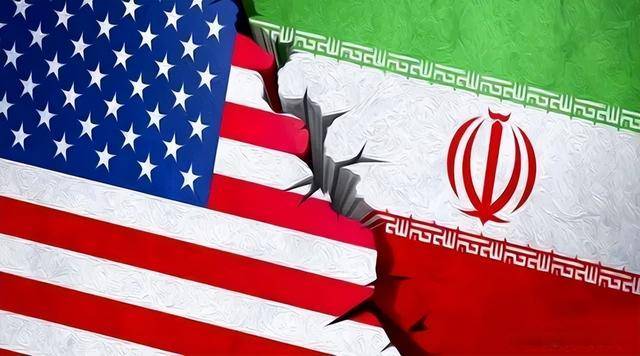
Recently, relations between the United States and Iran have continued to deteriorate, with military confrontation reaching a fever pitch and nuclear negotiations on the verge of collapse. This tense situation not only affects the stability of the Middle East but also exerts a wide-ranging and profound impact on the global economy.
On June 11, the US Department of Defense announced that it would allow the families of US military personnel stationed in the Middle East to "voluntarily evacuate" and reduce the size of its diplomatic mission in Iraq. Meanwhile, Iran issued a stern warning that if the US-Iran nuclear negotiations break down, its "upgraded missiles" have already targeted all US military bases in the Middle East, with a range covering all military targets in the region. The Islamic Revolutionary Guard Corps revealed that it had recently successfully test-fired a missile carrying a 2-ton warhead, capable of destroying deep underground bunkers. Such tit-for-tat posturing has significantly heightened the risk of military conflict between the two sides.
Progress in nuclear negotiations has been equally bleak. According to Refinitiv, senior Iranian diplomats have made it clear that they are prepared to formally reject the latest US proposal to end the nuclear dispute, describing it as "unfeasible" and "completely one-sided." Iran is highly dissatisfied with the US's tough stance on uranium enrichment and the lifting of sanctions, while the US insists on the "zero nuclear weapons" bottom line. The differences between the two sides seem irreconcilable. Reuters reported that a senior diplomat close to the Iranian nuclear negotiation team disclosed that Iran is drafting a negative response to the US proposal. Iran believes that the US proposal fails to meet its core interests, with overly stringent demands regarding uranium enrichment rights and sanctions relief. Iran contends that the US is attempting to impose a "poor agreement" with no sincerity in negotiation.
The escalation of tensions between the US and Iran has impacted multiple sectors of the global economy. The energy market is the first to bear the brunt. As a major global oil-producing region, the increased risk of conflict between the US and Iran has severely affected market expectations for oil supply. On June 12, West Texas Intermediate (WTI) crude oil surged 5.11% in a single day, marking its largest increase in ten months, while Brent crude oil approached the $70 mark. The UK has warned of a potential "escalation of military activities" in the Middle East. If the situation deteriorates further, the Strait of Hormuz, a crucial global oil transportation route, could be affected. This would put about 20% of the world's oil transportation at risk of disruption, undoubtedly driving oil prices even higher. This would significantly increase energy import costs for various countries, triggering a series of chain reactions, dealing a heavy blow to energy-dependent industries such as global manufacturing and transportation, and exacerbating global inflationary pressures.
Financial markets have also been severely jolted by the US-Iran tensions. Investor risk aversion has skyrocketed, with capital flowing into safe-haven assets. Gold prices have risen sharply, becoming the top choice for investors seeking to preserve the value of their assets. At the same time, the exchange rate of the US dollar, a traditional safe-haven currency, has also been affected. In the stock market, major stock indices have generally come under pressure due to market concerns about the negative impact of the conflict on global economic growth. After the news broke, the US stock market experienced varying degrees of decline. Investor confidence has been eroded, and the increased uncertainty has led to a strong wait-and-see sentiment in the market.
The global supply chain also faces severe challenges. Iran holds a certain position in global trade. Tensions between the US and Iran may impede Iran's foreign trade, leaving enterprises that rely on Iranian raw materials or component supplies facing shortages. Moreover, the turbulent situation in the Middle East may disrupt normal shipping operations, prolonging cargo transportation times and increasing costs. This further disrupts the stable operation of the global supply chain, raising corporate operating costs and affecting the normal rhythm of global production and consumption.
The intense military confrontation between the US and Iran and the impending collapse of nuclear negotiations have had far-reaching and multifaceted impacts on the global economy. The international community has widely called on both sides to exercise restraint and resolve disputes through peaceful negotiations to avoid causing even greater damage to the global economy. However, the current situation remains unclear, and the future is full of uncertainties. The world economy will continue to be under pressure in the shadow of this tension.

報告顯示,中國電力投資加速增長,預計2024年電網基建投資將超過5300億元。
近日,市場迎來了一則引人注目的消息:工業巨頭3M公司(MMM.N)在本周五公布了其季度業績報告,隨後股價飆升至近兩年來的
最近,外媒給OpenAI算了筆賬,今年可能要血虧50億美元。
近日,巴黎奧運會和世界鐵人三項協會聯合發布了一項重大決定,宣布因塞納河水質污染問題,原定於近期進行的奧運會鐵人三項首次下
當地時間7月18日,法國巴黎發生了一起令人震驚的持刀襲警事件。
近期,一則重大消息在國際舞臺上引起軒然大波,馬來西亞宣布加入金磚國家。
調查發現,互聯網和智能手機的使用幹擾了韓國近五分之一學生的生活。